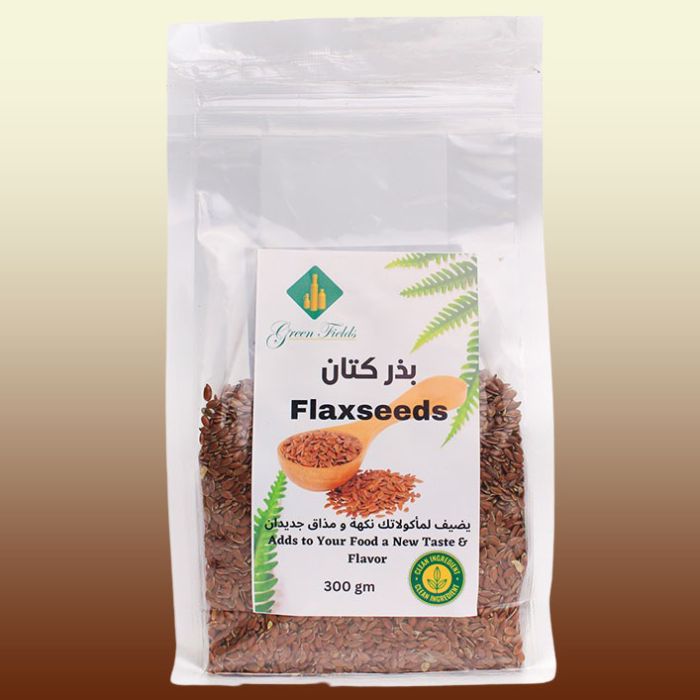
- without additives
- laboratory tested
- Ships within 24 hours worldwide
- *Request a bulk quote email info@greenfieldsjo.com
- Whatsapp: 00962777425666

Flax Seeds
| SKU | 651 |
|---|---|
| Weight | 0.350000 |
| Brand | Green Fields |
The Truth About Flax Seeds
Flax seeds, a favorite for their health benefits, have sometimes been wrongly handled in today's fast-paced food market. Some people, trying to make more money, have not been completely honest about how they grow and sell flax seeds.
Mixing Seeds: A Common Trick
To make more money, some growers mix good flax seeds with cheaper or different kinds of seeds. This makes the flax seeds less nutritious and is not fair to the buyer.
Storage Problems: Quality at Risk
After flax seeds are harvested, they need to be stored carefully. If not, they can go bad or get contaminated, which can be harmful to eat. Over-processing in factories can also take away many of their natural benefits.
Quality
We does things differently. We get our flax seeds directly from people we trust. This way, we make sure they are real and full of nutrients. Our close relationship with these vendors lets us keep a high standard of quality and purity, giving our customers true, healthy flax seeds.
Flax Seeds: A Journey Through Time
Why did the ancient Sumerians make bad comedians? Because every time they told a joke, they just ‘flax’ed their humor! ;)
Ancient Origins: The First Superfood
Did you know that flax seeds were the ancient world's version of a power snack? Long before they became a staple in health food stores, they were a favorite among some of history's most fascinating cultures. In Mesopotamia, around 5000 BCE, flax seeds were more than just a diet trend; they were a revelation. The Sumerians, known for their innovative spirit, were perhaps the first to recognize the potential of these tiny seeds.
Pharaohs and Seeds: Egyptian Afterlife
In Ancient Egypt, around 3000 BCE, flax seeds were not just a part of the diet but a symbol of health and prosperity. The Egyptians used flax for its seeds and fiber, with pharaohs indulging in them to promote longevity. These seeds were held in such high regard that they accompanied Pharaoh Tutankhamun in his tomb, as a treasure for the afterlife.
Roman Strength: The Warriors' Diet
The Roman Empire, with its mighty legions, also embraced the power of flax seeds. Roman soldiers consumed these seeds to boost strength and endurance, a testament to their nutritional value. This practice showcases how flax seeds have been a source of sustenance and strength throughout history.
Medieval Times: The Spread Across Europe
During the Middle Ages, flax seeds became a common feature in European diets. They were valued not only for their nutritional benefits but also for their fibers, used in clothing and other textiles. This period marked the diversification of flax seeds' use, highlighting their versatility and enduring appeal.
Modern Revival: From History to Health Trend
In contemporary times, flax seeds have experienced a resurgence as a health food. Recognized for their rich omega-3 fatty acid content, dietary fibers, and lignans, they have become a go-to ingredient for those seeking a healthier lifestyle. This historical journey from ancient superfood to modern health essential underscores the timeless value of flax seeds.



